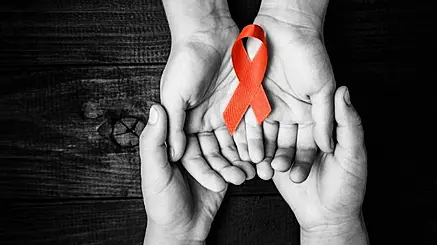Let's Tackle The Misconceptions Around HIV

Since it came into the public consciousness in the 1980s, HIV is a virus that has always had to deal with misinformation and misconceptions.
Here at College Times, we want to tackle those misconceptions and give you a better understanding of HIV and living with HIV in 2021.
What is HIV?
HIV, which stands for Human Immunodeficiency Virus, is a virus that attacks the immune system and makes it difficult to stave off infection and disease.
Ways HIV CANNOT be passed on
Misinformation is rife when it comes to HIV and how people acquire it. Understanding how HIV is and is not acquired can help reduce HIV stigma and encourage early testing and treatment for HIV.
You CANNOT acquire HIV through these means:
- touching, hugging or kissing
- coughing or sneezing
- sharing a glass, cup, cutlery or other utensils
- saliva, sweat or urine
- sharing a public toilet
HIV stigma can deter people who may have been exposed to HIV from getting tested.
This stigma also can sometimes instil a fear of being discriminated against or judged negatively. This can subsequently prevent people living with HIV from sharing their HIV-positive status or from pursuing effective treatments against HIV.
Effective methods to reduce your risk of getting HIV
There are a multitude of different ways you can reduce your risk of acquiring HIV. Here are some of these effective methods:
- using condoms every time you have vaginal or anal sex
- not sharing sex toys, or using condoms if you do
- not sharing needles or other injecting equipment, including spoons, filters and water
- taking post-exposure prophylaxis (PEP) if you have been exposed to HIV
- taking pre-exposure prophylaxis (PrEP) if you are at substantial risk
- getting tested and knowing your HIV status
Living with HIV in 2021
A more evolved understanding of HIV reduces the stigma surrounding the virus.
People who are HIV positive can live a long and healthy life on effective treatment. Early treatment of the virus can ensure the immune system stays strong.
When a person living with HIV is on treatment and the level of virus (viral load) in the body is so low that it cannot be detected, HIV cannot be passed on to sexual partners. This is also known as 'Undetectable = Untransmittable'.
It is yet another reason why getting tested is crucial for your own health and for the health of your sexual partners going forward.
For more information, visit https://www.sexualwellbeing.ie/sexual-health/sexually-transmitted-infections/information-on-hiv/